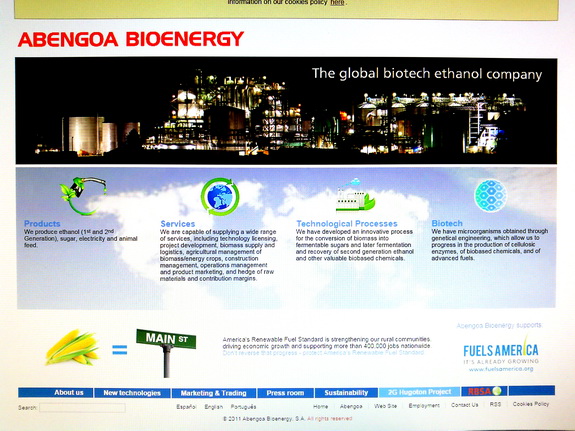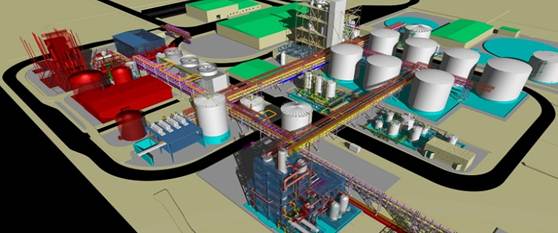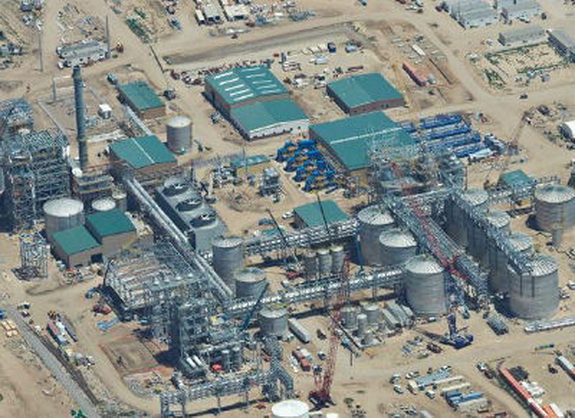17 October 2014

Abengoa’s proprietary enzymatic hydrolysis technology
turns crop residue (stalks, stems and leaves)
into a sustainable fuel source – cellulosic ethanol.
DETAILS

Abengoa (MCE: ABG.B/P SM /NASDAQ: ABGB),
today announced the official grand opening of
its second generation cellulosic ethanol plant
in Hugoton, Kansas,
located about 90 miles southwest of Dodge City.

Abengoa’s new industry-leading biorefinery
finished construction in mid-August and
began producing cellulosic ethanol
at the end of September with the capacity
to produce up to 25 million gallons per year.
The plant utilizes only
“second generation” (2G) biomass feedstocks
for ethanol production,
meaning non-edible agricultural crop residues
(such as stalks and leaves)
that do not compete with food or feed grain.
The state-of-the-art facility also features
an electricity cogeneration component
allowing it to operate as
a self-sufficient renewable energy producer.
By utilizing residual biomass solids from
the ethanol conversion process,
the plant generates 21 megawatts (MW) of electricity
– enough to power itself and
provide excess clean renewable power
to the local Stevens County community.
The Hugoton plant opening also marks
the first-ever commercial deployment of
Abengoa’s proprietary enzymatic hydrolysis technology,
which turns biomass into fermentable sugars
that are then converted to ethanol.
Among the first wave of commercial-scale ethanol plants
in the country, Hugoton builds on recent industry momentum
showcasing cellulosic ethanol
as a sustainable alternative fuel source that
significantly reduces greenhouse gas emissions and
increases energy independence.
In addition to the plant’s crucial role in
proving the commercial viability of cellulosic ethanol,
its success provides a platform for
the company’s future development of other bioproducts that
reduce petroleum use, such as
bioplastics, biochemicals and drop-in jet fuel.
WWW.CHEMWINFO.COM BY KHUN PHICHAI














